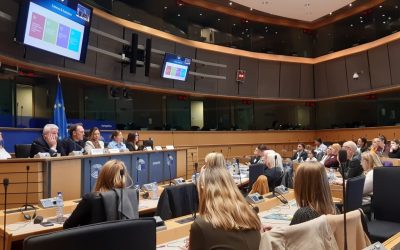Creativity and innovation related competences are cross-cutting competences hard to acquire. Despite the fact that these competences are more and more requested in the job market, they are difficult to plan, deliver, assess and there is no broad acceptance and framework around them, both in academic and business environment. Moreover, their acquisition requires the adoption of innovative teaching, learning and validation approach far from usual schemes.
The project partners of Creativity and Innovation Management (CIM) are phasing these challenges by developing an innovative teaching and learning approaches to promote Creativity and Innovation Management in Higher Education and in business, which refers to and wants to contribute to the achievement of the UN Sustainable Development Goals (SDGs).
Beside supporting the SDGs, CIM programme creates a competence and oriented validation system that supports the acquisition of creativity and innovation competences in academia and business environments. The programme is based on the EntreComp: The Entrepreneurship Competence Framework.
A piloting phase in 2020 will see students from different universities involved in project-oriented internships, where they will mix blended learning experience with the development of a personal project. The topic and aim of the projects will vary in accordance with the profile of the students and company mission and it will all look at the improvement of the SDGs.
The second CIM project meeting in Thessaloniki (24-25 of September 2019), besides being an occasion to discuss the first results of the project, was planned to give the partners the possibility to share their point of view and experience on the topic of creativity and innovation during two focus groups. Additional online focus groups will be organised with international experts of the field, and coming from the business and academia, and this will provide an overview of the current practices used in different countries.
As an anticipation of the next learning mobility for trainers, which will be held in Palermo in December 2019, the project team also participated in a Design Thinking Session called the Creativity and Innovation Challenge. The design thinking method has been identified as main method to guide creative problem solving during the piloting phase of the project.
About the project
CIM – Promoting Creativity and Innovation Management in an innovative blended learning and validation programme at the interface between higher education (HE) and business is co-funded by the Erasmus+ Programme – KA2 Cooperation for innovation and exchange of good practices – Knowledge Alliances for Higher Education.
Partners
CIM partnership:
- Coordinator: Universitaet Duisburg-Essen (Germany)
- Deutsches Institut fuer Erwachsenenbildung eV Leibniz-Zentrum (Germany)
- Blended learning institutions cooperative (Germany)
- Q21 – Agentur fur qualifizierungs und transfermanagement gmbh (Germany)
- Joker Toerisme nV (Belgium)
- Trendhuis (Belgium)
- Scuola Superiore di Studi Universitari e di Perfezionamento Sant’Anna (Italy)
- Consiglio Nazionale delle Ricerche (Italy)
- Vilniaus Universitetas (Lithuania)
- Lietuvos Pramonininku Konfederacija (Lithuania)
- Aristotelio panepistimio thessalonikis (Greece)
- Catro (Bulgaria)
- Die Berater Unternehmensberatungs Gesellschaft mbh (Austria)
- Dublin City University (Ireland)
- Instituto Politecnico de Leiria (Portugal)
- CESIE (Italy)
For further information
Read more aboout CIM.
Visit the website: cim-project.eu/
Contact Caterina Impastato: caterina.impastato@cesie.org.








